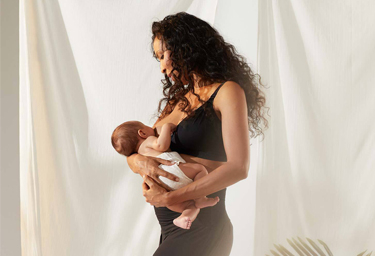With expert advice constantly changing you can be excused for being a little confused, when it comes to knowing when to start feeding your baby solids.
When I had my first child, Ethan – 14 years ago, it was recommended that you don’t start feeding your baby solids until 6 months old. With my second son Carter who is now 8, it was suggested that you could start as early as 5 months old.
The most recent advice suggests that you can start to feed your baby solids from 4 months old. It is however, important to gauge his or her interest in food, as not all babies will be ready at such an early age.
Here’s how to gauge if your baby is ready for solids:
- Does your baby have an increased appetite?
- Are you breastfeeding more often and for longer?
- Is your baby showing an interest in your food?
- Is he putting things to his month often or exhibiting hand to mouth behavior?
- Can he or she sit up straight? Do they have good head, shoulder and neck control?
What foods should I start with?
It is important to introduce your baby to a variety of fresh whole foods early, this will set him up for good eating habits and help to avoid a fussy eater.
Refrain from feeding him over processed prepackaged foods that contain a lot of sugar and or salt. Fresh is best!
Start with rice cereal that is low in salt and sugar but high in iron. Rice cereal is easily digested and is rich in Iron, which is essential for growing bodies.
TIP: Mix the dry cereal with some breast milk.
Steamed pumpkin, sweet potatoes, carrots, peas and spinach are all a great for a new eater. You can introduce them separately or mash them together to expose baby to a number of different tastes. It might be worth avoiding the sweeter foods till later, especially after your baby has begun liking his or her vegetables.
TIP: Avoid adding salt and or sauces to freshly cooked vegetables. Vegetables have a beautiful, unique taste on their own. Should he not like some varieties to start, try introducing them again next time. The more times he is exposed to the food early on, the more likely he will develop a liking for it. It is said that it can take up to 10 tries before a person’s taste buds will accept a new taste.
Stewed apple and pears are also a great option for later on. Keep the puree very smooth to start with then mash less finely in time to introduce textures.
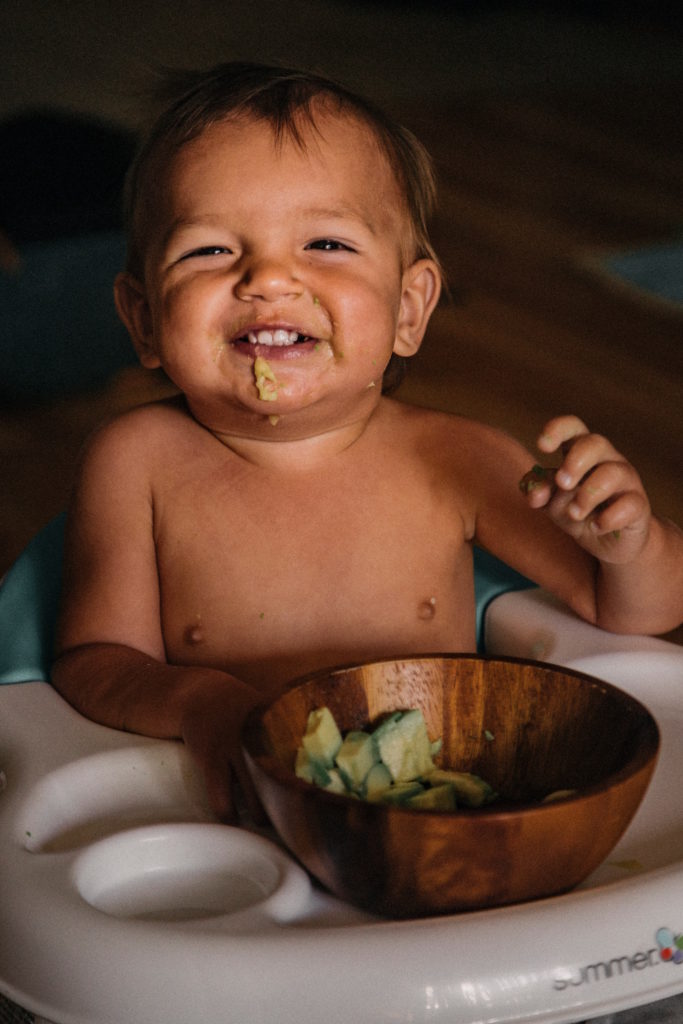
Avocado and banana are both beautiful fruits too, that can be mashed and eaten raw.
Legumes, pasta and rice can be mixed with vegetables and add a variety of different textures to his diet.
As baby becomes a more efficient eater, you can introduce soft proteins such as fish (with no bones) and slow cooked meats that require less chewing can be added.
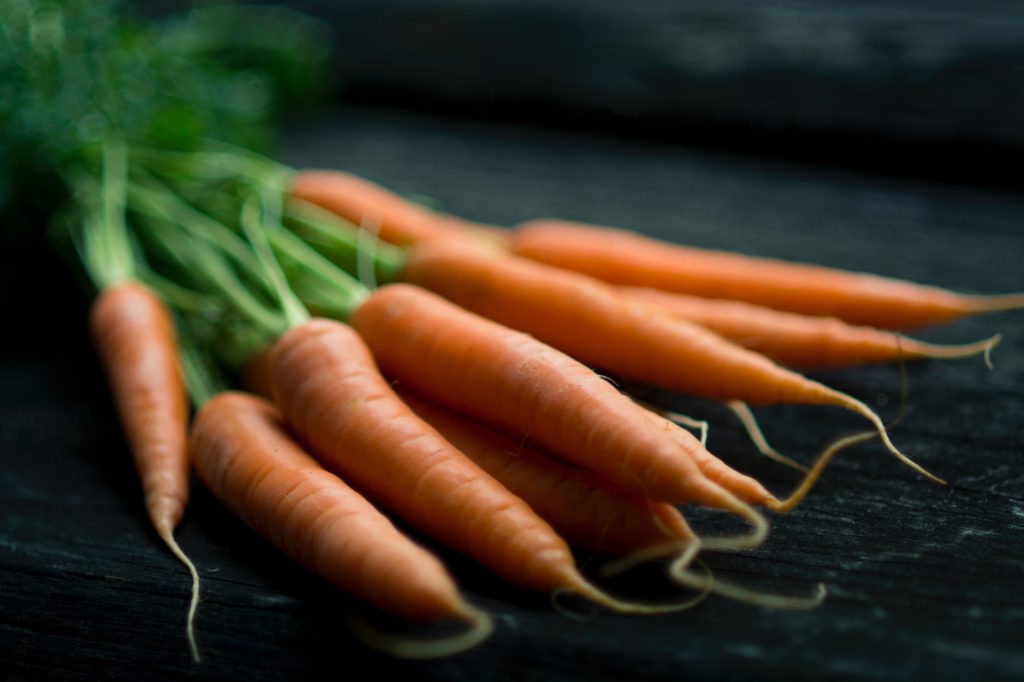
Raw pieces of vegetables and fruit sticks can be given to baby to help introduce different textures at a later stage too. I.e. Carrots, beans, broccoli, snap peas, cucumber, apple, melon, orange etc.
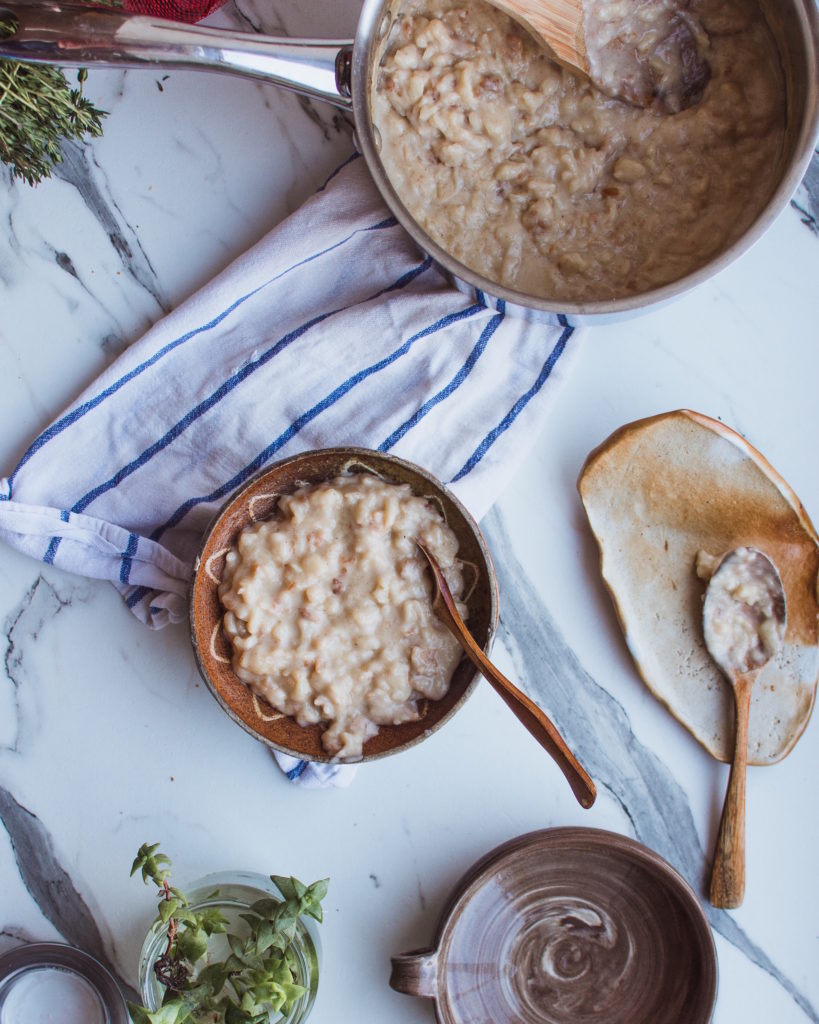
Toast, bread and rusks are also an option, as baby’s saliva will wet the food making it easier to swallow.
Are all foods created equal?
Fresh vs prepackaged foods
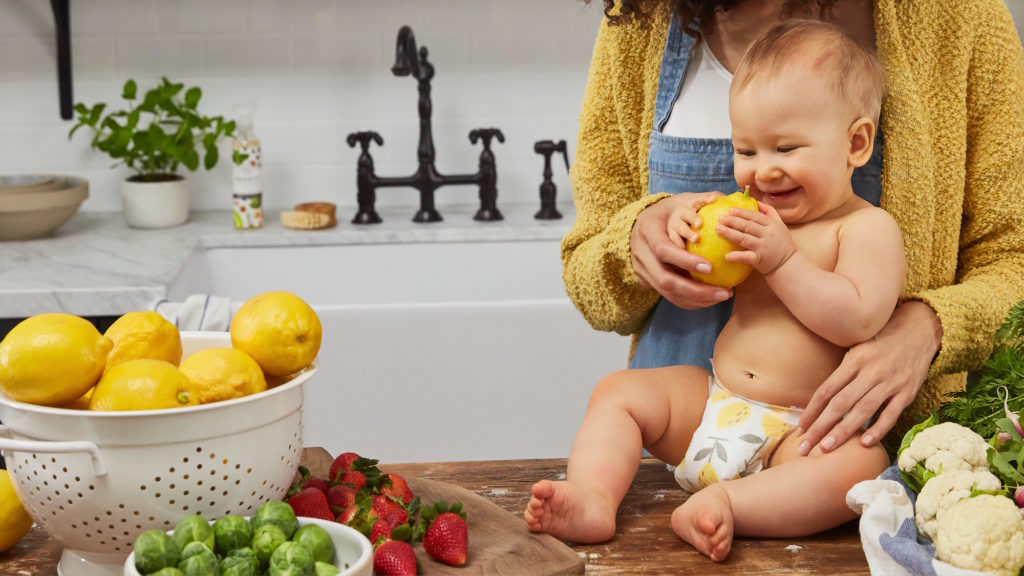
Fresh fruit and vegetables contain valuable vitamins and nutrients that are essential for the health and well being of your baby. A nutrient rich diet will not only help your baby grow and develop but will also help to build a strong immune system.
Prepackaged foods will contain some preservatives and are often over processed. The manufacturing/ refinement process can deplete the natural goodness that food contains. This means more food will need to be consumed or extra supplements considered to ensure your baby is getting a well balanced diet.
Foods to avoid
Avoid foods that contain too much salt.
Read the labels on all pre-packaged foods before purchasing. Babies should not be eating more than 1g of salt per day; any more consumed could damage baby’s kidneys.
Note: Baby’s get a small amount of salt via breast milk so no salt should be added to baby food.
Foods that contain high levels of salt are: potato chips, crackers, cookies, sauces, processed meats and some cereals.
Also avoid too many sugars. Sugar can be found in a lot of different foods. Natural sugars can be found in fruits and honey and are acceptable in moderation.
Refined sugars on the other hand provide no nutritional value. They can be found in cookies, cakes, muesli bars, breads or pastries, flavored milks, sodas, fruit juice and or cordials, cereals and sauces no name a few. These foods are not ideal for babies and fed in excess can cause obesity and long-term health issues.
Preparing food
For busy mothers who do not have time to prepare fresh meals every day, cook in bulk and freeze portion-sized meals. Record the date and meal included on the container, so that you are able to keep track of the contents and expiry date.
Keep your surfaces clean and use separate chopping boards for meats and fruit and vegetables when preparing foods to help avoid cross contamination
Ensure your containers are clean and sterilized to avoid germs before placing meals inside for freezing.
Meals can be defrosted when needed. After reheating meals, be sure to check the temperature of the meal before feeding it to the baby.
How will baby eat food?
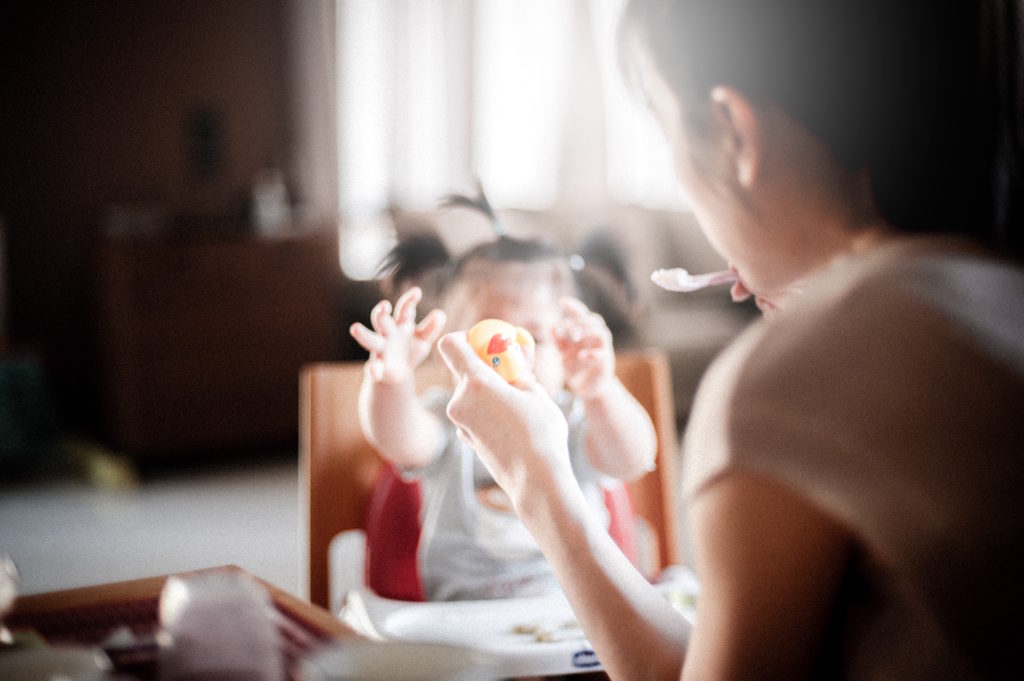
You might like to start with giving baby small finger type foods such as rusks, banana and or soft pieces of pumpkin that he is able to hold in his hand. Don’t be concerned to start with if he consumes very little. He is simply learning through play. He will get the necessary nutrients from your breast milk early on.
As he gets older you might like to feed him with a spoon, to help ensure he eats a decent amount. Encourage him to use the spoon should he be interested later on. Feeding himself will help to develop coordination, strength and a sense of independence.
What can I do to ensure my baby gets a well balanced diet?
For some of us food nutrition is something we have grown up with and preparing a well-balanced meal comes naturally to us. Experimenting with flavors and combinations is not at all daunting.
For those of you who need some help it is advised to purchase simple cooking books; baby’s first foods and or search for recipes on the Internet.
Asking friends and family for ideas can also be helpful.
A simple rule to be applied each time you give your baby some food. Ask yourself this question:
Does if come from a can or package?
If you answer is yes, then it is advised to reconsider your choice and opt for a fresh, whole food option perhaps.
What is whole food?
Whole foods are plant and animal based foods that are unprocessed (or very little) and unrefined.
They include: Fruit, vegetables, and Whole grains, Legumes.
Should I feed my baby organic foods?
“Organic food is the product of a farming system which avoids the use of man-made fertilisers, pesticides, growth regulators and livestock feed additives. Irradiation and the use of genetically modified organisms (GMOs) or products produced from or by GMOs are generally prohibited by organic legislation.”
Food that is grown in an organic state is always going to be better for us, as it is free from sprays and chemically modified fertilizers etc.
Eating an organic diet is not always an option. It can be very expensive to eat this way too, should you be purchasing food from a supermarket. For those of us lucky enough to grow our own fruit and vegetables, eating organic is easy.
Organic food is technically better for us; however, all fresh food contains vitamins and minerals essential for our body’s health. Make sure you wash your food thoroughly before eating to wash away any chemical sprays and or wax that may be on the food.
Don’t miss: Newborn Baby Essentials
Like this post? Follow Cake Maternity on Facebook to get the latest updates!
—
Disclaimer: Cake does not provide medical advice, diagnosis, or treatment. Any information published on this website or by this brand is not intended as a substitute for medical advice, and you should not take any action before consulting with a healthcare professional.
LIKE WHAT YOU READ?
Join CakeMama Club & get 10% OFF your first order!
Plus you’ll get tips + tricks for pregnancy, postpartum & breastfeeding, get member-only offers, earn CakeCoins every time you shop + more. Learn more














































































































































